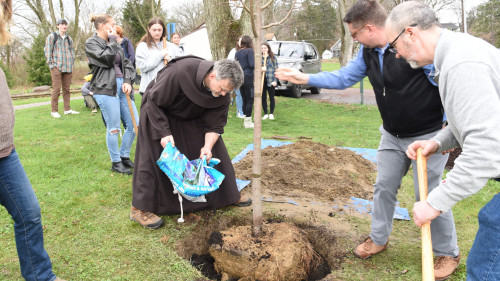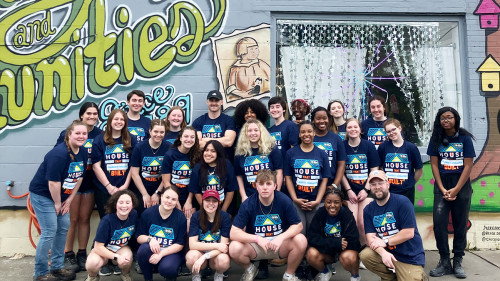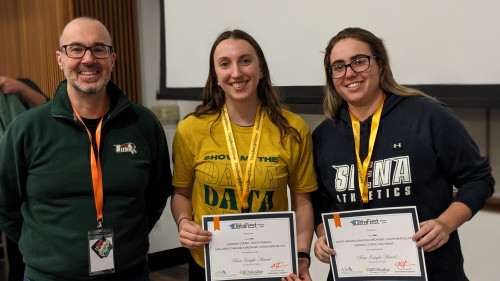
When you have a health concern, are you easily able to see a health care provider? Millions in this country alone do not have that privilege, and if they can get an appointment, they may have issues with insurance coverage, affording or accessing prescribed medicine or therapy, or even getting to and from the health care office in the first place. What if there is a language barrier? What if the patient has to recuperate not in a comfortable home or apartment, but in a homeless shelter?
James McDonald ’86 M.D., M.P.H., New York’s commissioner of health, explored the social determinants of health in his February 6 lecture “Achieving a Common Understanding in Health Care,” part of the “Inclusive Leadership in Health Care” series sponsored by Siena’s Health Studies Program.
“Poor health care outcomes are directly linked to these and other health care disparities,” said Dr. McDonald. “My goal is to try to eliminate those disparities.”
He said for him, health care leadership can be summed up by the mantra: “It’s not about me. It’s never about me.”
“When I see leaders who succeed, I know they haven’t lost track of their mission.”
He spoke fondly of his years as an undergraduate at Siena, and has particularly happy memories of studying under professors Patricia Brown, George Bazinet and Ed LaRow. After a stint in the U.S. Navy and then medical school, he practiced as a pediatrician in Pennsylvania. He explained that he always felt a calling to practice medicine in a Third World country, so after a few years he explored options to move his practice. Sadly and surprisingly, he found those attributes of extreme poverty within U.S. borders – on a Navajo reservation in Arizona, one of the poorest counties in the nation.
“Systemic racism was and still is an issue in our country,” he said.
He learned from his time working with members of the Navajo nation that he was a guest, and that people who looked like him generally did not have a good history with the Navajo; that if he listened long enough solutions usually presented themselves; personal relationships are very important; and good words can travel a long way.
His medical career eventually led to health care administration in Rhode Island and then New York. When addressing problems and exploring new initiatives and policies, he asks himself three questions: Who gets helped? Who gets paid? And, Is someone getting something at the expense of someone else?
Developing policy involves deciding what work is involved, who should do it, and what is the overall public health value. When taxpayer dollars are being spent and the public’s well-being is on the line, it’s not a time for guesswork.
“We have to try to explain the ‘why,’” he said. “If we can do that, it can lead us to making the right decisions. Developing a common understanding of health equity is our most important priority.”
He said four key ways to achieve this are to increase Medicaid funding, expand health care coverage, address social determinants of health, and strengthen data collection.
Andrea Smith-Hunter, Ph.D., professor of management, organized the lecture and called Dr. McDonald‘s presentation “extremely insightful and beneficial.”
“It allowed students to see issues of inequity and the need for a more inclusive health care system that addresses disparities,” she said. “This is particularly critical for students today, as they are the next generation of health care providers.”
Ava Bibisi ’24 introduced Dr. McDonald before his talk.
“The way he communicated with the audience was captivating,” she said. “He was able to talk about his journey since leaving Siena while incorporating his lived experiences and how those are influencing his position and decision making as New York’s Commissioner of Health.”
Michael Ganino ’25, a health care management major, called the talk “insightful.”
“It showed just how much opportunity there is in the health care profession, now I am excited to see where my own journey takes me.”
Daniel D. White, Ph.D., M.P.H., program coordinator for Siena’s health studies major, noted, “Dr. McDonald’s message made it clear to me that great public health leadership requires reverent listening, humility, and enough respect for citizens to tell them the truth. Explaining the ‘why’ of each policy is as important as the science behind it.”

